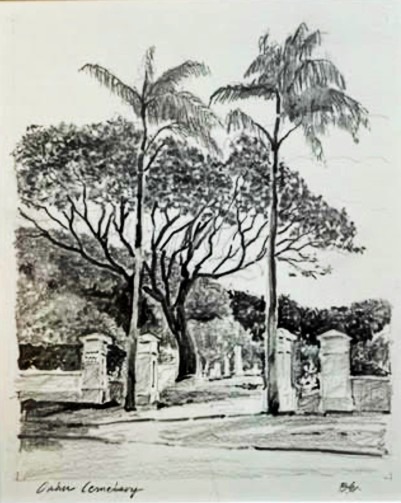In the Bahá’í Faith, the concept of Divine Confirmations occupies a significant and multifaceted position. These confirmations are understood as the divine assistance bestowed upon individuals who earnestly strive toward spiritual goals while embodying the principles set forth by Bahá’u’lláh, the Founder of the Faith. But what exactly do we mean by Divine Confirmations? And can the pursuit of such confirmations bring challenges along the way?
The notion of Divine Confirmations can be conceptualized as a myriad of spiritual favors that manifest in the form of guidance, inspiration, and strength. It is essential to understand that these confirmations are not merely bestowed without effort or intention. Rather, they arise in response to an individual’s sincere commitment to fostering their spiritual development and serving humanity. This relationship between effort and divine grace elicits a paradoxical question: if Divine Confirmations are contingent upon human action, how do they reflect the essence of divine love and mercy?
To comprehend the intricate dynamics of Divine Confirmations, we must first examine the fundamental tenets of the Bahá’í Faith. The teachings emphasize the unity of God and the oneness of humanity. Under this umbrella, individuals are encouraged to develop virtues such as love, compassion, and justice. These virtues, when practiced diligently, serve as conduits for spiritual confirmations emanating from the divine realm. The congregational prayer, personal spiritual reflection, and acts of service become vital tools in harnessing these confirmations.
Moreover, the value of these spiritual endowments lies not only in the personal upliftment they confer but also in their collective significance for the well-being of society. When individuals receive and share these divine blessings, they contribute to the continental tapestry of spiritual life. Thus, one might ponder: what occurs when one’s aspirations outstrip the level of divine confirmation experienced? The ensuing struggle might be perceived as a challenge, yet it also invites an opportunity for growth and introspection.
In the context of Divine Confirmations, an essential aspect of the Bahá’í experience is the process of seeking guidance through prayer and meditation. These practices serve as a vital link to the divine source. They create a space for reflection, allowing individuals to cultivate an awareness of the confirmations available to them. During this time, one may encounter doubts or obstacles, yet these challenges can often herald a deeper engagement with one’s faith.
Bahá’ís are also taught about the importance of obedience to the divine will. The intentional practice of obedience is an act of surrender that opens the heart to receive spiritual confirmations. Such obedience, however, does not entail blind acquiescence; rather, it demands a conscious and profound understanding of the divine principles espoused by Bahá’u’lláh. This juxtaposition of willfulness and submission can invoke a sense of tension: how does one align personal ambitions with divine directives? This tension serves as fertile ground for maturity and discernment.
The transformative nature of Divine Confirmations can be exemplified through historical narratives. Many Bahá’í communities have documented incidents where individuals, through steadfast commitment to their faith, experienced clarifying insights or profound inspirations at critical junctures in their lives. These epiphanies often come in unexpected forms, reinforcing the belief that divine assistance is ever-present and can manifest through various channels: personal relationships, community experiences, or even serendipitous encounters.
Another layer to this exploration lies in the collective manifestation of Divine Confirmations. The Bahá’í Faith stresses that true spiritual progress is transcendent of individual endeavors. Rather, it is a holistic reinforcement of community bonds. When Bahá’ís engage collectively in prayer, service, and consultation, they invoke a shared spiritual environment where individual Divine Confirmations can flourish. This communal experience of divine grace brings about a collective push towards unity and service, posing yet another question: do personal confirmations carry equal weight when they culminate in collective action?
Nevertheless, it is imperative to recognize that the journey toward realizing Divine Confirmations is fraught with uncertainties. The prospect of disillusionment looms for seekers who may anticipate immediate or sensational manifestations of divine favor. Cultivating patience is a fundamental practice within the Faith, calling believers to trust in the unfolding of divine will over time. Each moment of spiritual doubt can serve as a kind of crucible, honing resilience and faith through the process.
In exploring the ramifications of Divine Confirmations, spiritual seekers must navigate the delicate interplay between internal aspiration and external validation. The concept of divine assistance challenges traditional notions of success by emphasizing spiritual fulfillment over worldly accolades. The quiet, unassuming confirmations often possess the greatest capacity to uplift and inspire, inviting profound introspection about the true meaning of success.
Ultimately, Divine Confirmations can be viewed as a delicate dance between the individual and the essence of the Divine. They offer a captivating invitation to delve deeply into the richness of one’s spiritual journey. Consider the challenges and the grace that arise through this process: are they not both equally vital aspects of the Divine’s intricate fabric of generosity? It is in navigating these complexities that individuals can truly embody the transformative power of Divine Confirmations in their lives and the lives of those around them.
By wholeheartedly engaging with the Bahá’í teachings, each believer can continue to unravel the profound mystery of Divine Confirmations. In grappling with this divine interplay, a path emerges that leads not just to personal enlightenment but also to the upliftment of the entire human family, which remains the ultimate aim of the Bahá’í Faith.
